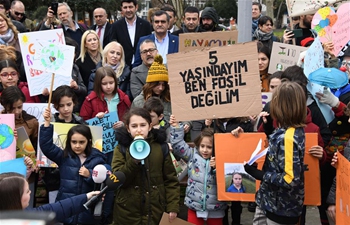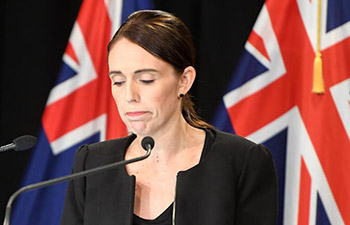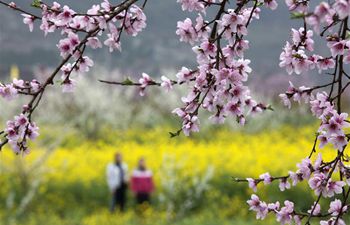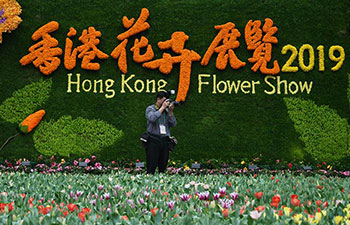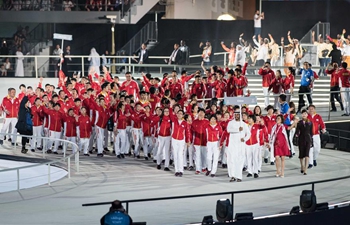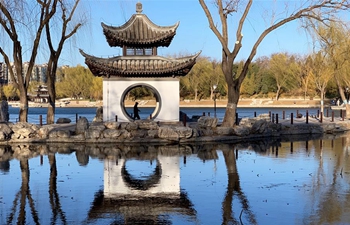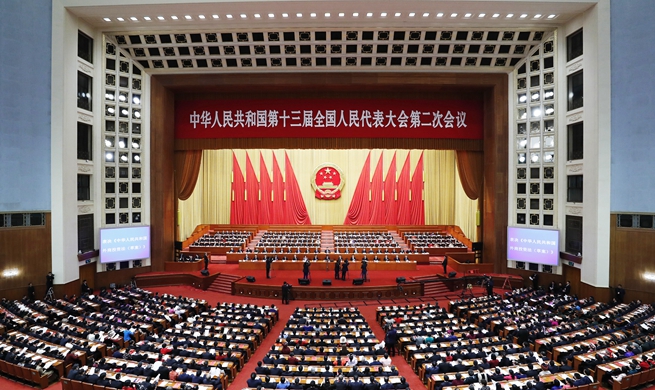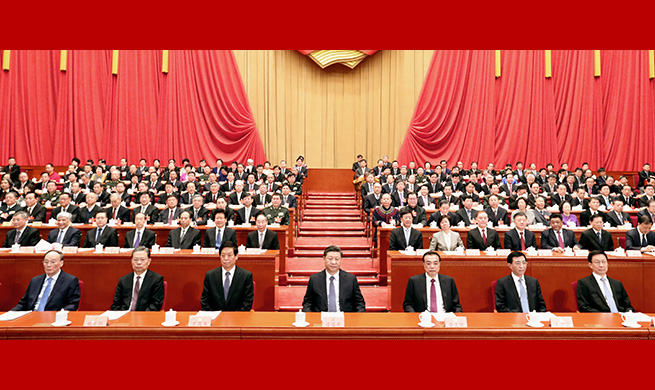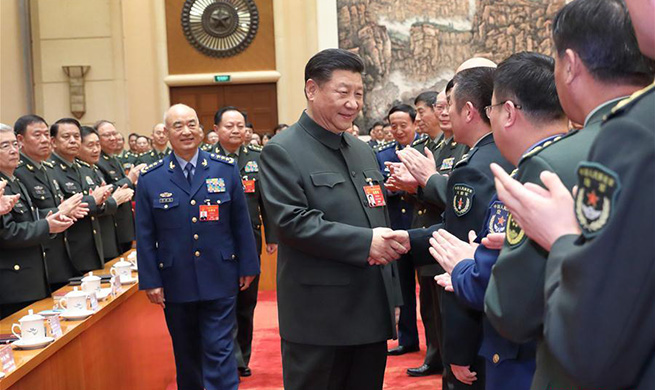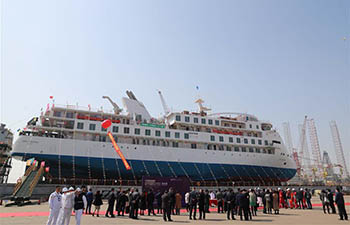HELSINKI, March 15 (Xinhua) -- The importance of early childhood education (ECE) was highlighted at a two-day international convention which concluded on Friday in Espoo, Finland.
The International Summits of the Teaching Profession (ISTP) are organized annually by the Organization for Economic Co-operation and Development (OECD) and Education International, a global organization for teachers.
The conference in Espoo, which drew ministers and representatives of teachers' trade unions from 20 countries and regions, was the first which had its theme on early education.
Finnish Minister of Education Sanni Grahn-Laasonen thanked the OECD for emphasizing early childhood education as a tool to promote equality.
In Finland, she said, access to early education has been widened and a larger share of early education staff will be highly educated. She explained that "play pedagogics" has been developed in Finland for the needs of early education. Grahn-Laasonen described the ISTP as a unique dialogue between ministers and union leaders.
Susan Hopgood, the president of Education International, said that now the "illusion is finally removed that early education is less important than primary and secondary levels". She noted that early education has an impact that continues into adult life.
Andreas Schleicher, the director for the Directorate of Education and Skills at OECD, called for a rethinking of free early education. "Many countries here around the table take pride in education being free, including universities. But tuition has to be paid for small children." Schleicher pointed out that even the host country Finland collects fees for early education.
Schleicher suspected that early education is still being considered as "something extra", rather than being the foundation. He noted that while the OECD has been suggesting some cost sharing between the society and the individual at the university level, that is not a good recipe for the early years. "If there is any sector that requires public investment, it is the early years," Schleicher said.
RELEVANCE NEEDED
Besides focusing on early education, the conference in Espoo reviewed in depth the challenges today. Schleicher said that internationally the gap between what society expects from education and what actually happens has become wider in many parts of the world. The biggest challenge for schools in the 21st century, he said, may be the loss of relevance as "we educate the children for "our past" rather than for "their future".
Schleicher referred to comments by Li Yongzhi, deputy director general of the Shanghai Municipal Education Commission, who told the gathering that sustainability means getting ready for the industrial revolution through reconfiguring the system and technology in education. Then learning becomes more relevant, more inclusive and also more productive.
The OECD director said the current schools were invented in the industrial age, when prevailing ideas were standardization and training once for a life time. "The change requires an enabling environment that can unleash ingenuity in schools and can build a capacity for change. It also requires leaders to tackle institutional structures that are too often around the interests of adults rather than the needs of learners."
Several speakers underlined the need for trust within the education systems. "At the time when command and control systems become weaker, building trust is perhaps the most promising way for us to build and fuel modern education systems."
"Trust can never been legislated or built in administrative structures. Trust can only be inspired through healthy relationships", Schleicher said.
JOY OF LEARNING
During the conference, excursions were offered to early education facilities. Christine Choi, the undersecretary for education in Hong Kong, said she was impressed and would take "the joy of learning" from Finland with her back to Hong Kong. She is also considering plans for early childhood education teachers to be sent to Finland for exchanges.
Kin Yuen Ip, vice president of the HK Professional Teachers Union, told Xinhua that he was impressed with the Finnish view that "less is more." "School days are much shorter than in Hong Kong and there is less homework, but the results are good."
"If we could attain comparable results with less hours, it would be good for the wellbeing of teachers and students. Finland has the shortest school hours, we are somewhere at the other end," he said.
As an example of what Finns learned from the visitors, Minister Grahn-Laasonen singled out the school system in Shanghai as an example Finland can learn from. "They are a front runner in developing cooperation between teachers. They have developed tools for that." Grahn-Laasonen said relations between teachers had been found to be a bit problematic in Finland in an earlier review and needed attention. She also mentioned the Singapore system of continued learning on the job as something Finland could benefit from.
The local co-host of the event was the Finnish Trade Union of Education (OAJ). Its Chairman Olli Luukkainen said the Finns do not generally realize how much admiration the Finnish school system gets internationally. He suggested that a future meeting should focus on vocational schools.
